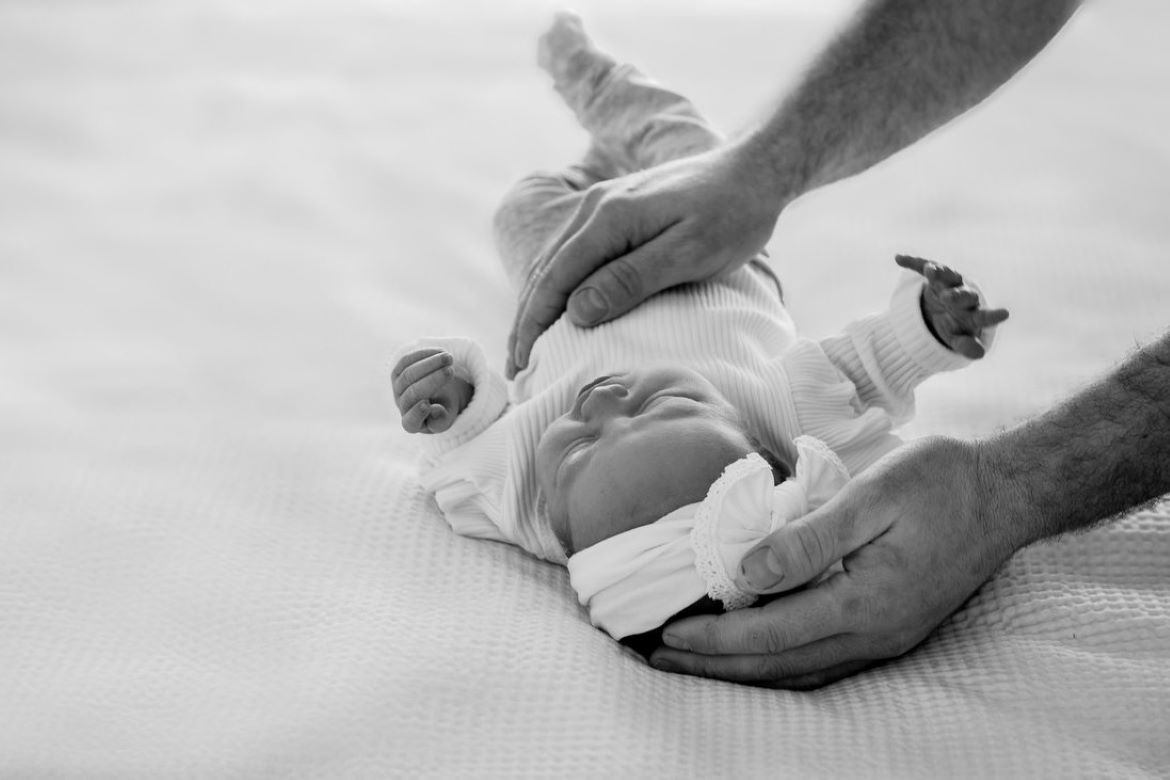By Sarah Palmer
“My baby has never slept through the night – they’ve always been a terrible sleeper – what am I doing wrong?”. This is one of the most commonly asked questions I see when it comes to parents worrying about their baby or toddler’s sleep. Let’s take a look at sleeping through the night and why, as a Baby-Led Sleep & Wellbeing Specialist, I’m calling for a change in the way we view it.
First, you need to know that nobody ‘sleeps through the night’. As we move from one sleep cycle to another, we all rouse slightly and then go back into a deeper sleep (as long as we are not hungry, thirsty, hot, cold, in pain, uncomfortable, anxious or need to go to the toilet). This partial arousal from sleep is something adults move through so easily that we don’t even notice (it’s second nature for us to roll over, take a sip of water and adjust the blanket without even realising we’ve woken up). However, for babies it is normal for them to turn into full arousals because they are designed to need our support to meet their needs and to get back to sleep.
First, you need to know that nobody ‘sleeps through the night’.
We then need to understand that babies waking during the night is a protective mechanism and is developmentally normal behaviour, which is important in the first few years. We know that it is recommended that you room-share with your baby for the first 6-12 months of their life to reduce the risk of SIDS, but what does this actually mean? Babies who are sleeping in close proximity to their caregivers will be in a lighter state of sleep and will wake more frequently than babies sleeping in a separate room. Despite what our social values and expectations say, we actually want babies to stay in the lighter stages of sleep – it is easier for a baby to wake up when they are in a light sleep and this means that if they experience something that is a threat to their health (such as a pause in breathing, for example), they will wake and signal for help (they will cry and need comforting). Being close to your baby helps them regulate their bodily functions, helps you to attune to one another and helps you communicate with each other; it supports your breastfeeding relationship and helps your baby build a secure attachment. Anthropologists Professor James McKenna and Dr Helen Ball have dedicated decades of work to researching this, so we have very clear evidence that this is the way things work biologically.
Bottom line: We don’t want babies to sleep too deeply too early – light sleep and waking frequently protects them from SIDS.
Breastmilk is digested faster and more effectively than formula and therefore breastfed babies will wake more often to feed.
We also want to remember that sleep and feeding are interconnected and that especially during the first year, when milk is the main source of nutrition and a baby’s stomach is still so small, that your baby will continue to wake and need feeds overnight. Breastmilk is digested faster and more effectively than formula and therefore breastfed babies will wake more often to feed. It is important to know that this is the biological norm, it is protective for your baby’s safety, growth and development, it is not a “sleep problem” that needs to be fixed and you do not need to hold back feeds to try and get more sleep. And don’t forget that breastfeeding is about far more than nutrition and provides an important source of comfort, as well as natural pain relief.
So, when we look at our understandings of what is biologically normal (read: that babies and toddlers waking during the night is NORMAL!), why do we think that our babies need to be sleeping through the night? Why do we feel like there is something wrong with our baby or are convinced that we are doing something wrong when they aren’t sleeping through by 6 months of age? There is a big, flashing sign pointing to our modern society and the culture we live within that informs us of how we are expected to parent.











